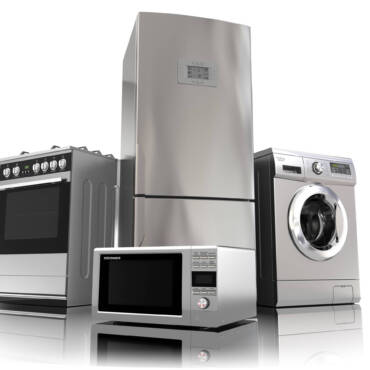With power outages becoming more common, the logical choice would be to look for a long-term home backup power source such as a generator.
These machines will keep your family and guests comfortable in case of sudden power failure caused by storms or other unforeseen events. A generator can automatically supply power to necessities like air conditioning and refrigerators.
In this guide, you’ll find everything needed to choose the best generator for a 3 bedroom house.
Generator Size for a 3 Bedroom House
Generator size is measured in wattage and depends on your home’s total energy demand. Picking the right size is important for a three-bedroom house.
It ensures essential systems keep running smoothly. The correct size makes a big difference during an outage.
Wattage Requirements for a Typical 3 Bedroom House
A 15,000-30,000-watt generator would be sufficient to run most basic appliances, such as refrigerators and air conditioning units, without a hitch in a three-bedroom house.
To ensure uninterrupted power, it’s best to choose a generator with slightly more capacity than your immediate needs.
For example, if your appliances require 20,000 watts, consider a 25,000-watt generator to provide extra power and a safety buffer.
This added capacity prevents overloading and helps the generator run efficiently. Use the table below to help calculate wattage for common household items:
| Appliance | Running Wattage | Starting Wattage |
| Refrigerator/freezer | 700 watts | 2,200 watts |
| Central air conditioner (24,000 BTU) | 3,800 watts | 4,950 watts |
| Window air conditioner (10,000 BTU) | 1,200 watts | 1,800 watts |
| Light bulbs (10 bulbs x 60 watts) | 600 watts | — |
| Personal computer | 100 watts | — |
| Sump pumps (1/2 HP) | 1,050 watts | 2,150 watts |
| Electric water heater (40 gallons) | 4,500 watts | — |
| Microwave oven | 1,200 watts | — |
| Garage door opener (1/2 HP) | 875 watts | 2,350 watts |
Note: The starting wattage is the surge of power needed to start the appliance. Some appliances, like lighting and personal computers, do not have a significant starting wattage.
If you’re unsure how much power your appliances consume, you can refer to the U.S. Department of Energy’s appliance energy calculator.
Fuel Type Considerations
Fuel type is an important factor when selecting a generator. Common options are natural gas, propane, and gasoline, each with unique benefits.
Natural gas is convenient for homes with a gas line, offering a continuous fuel supply. Propane burns cleanly and stores well, making it efficient and eco-friendly.
Gasoline is easy to find but needs frequent refills and doesn’t store as well as other fuels.
Generator Options for a 3 Bedroom House
Choosing a generator for your three-bedroom home means understanding the types available. Some models suit certain needs better than others.
Here’s an overview of options to help you decide:
Portable Generators
A portable generator typically provides between 1,000 and 7,500 watts, making it suitable for powering small devices and lights during brief outages.
They’re commonly used for camping trips or temporary solutions during power failures. Due to their relatively smaller size, some Generac portable generator models even have wheels making them easier to move and transport.
It provides the most affordable option. However, due to its smaller size, it also comes with a limited power capacity. It can run multiple appliances for a limited time, and then it will need to be refueled.
This can become a minor challenge during extended power outages.
Inverter Generators
An inverter generator produces clean electric power, perfect for sensitive electronics like computers and medical equipment.
These machines run quietly and would make the best choice for those living in quiet suburbs.
Most inverter models range from 1,000 to 4,000 watts, covering light to moderate power needs.
Whole House Generators
A Generac whole-house generator is a permanently installed system capable of powering an entire house and more appliances during outages. This model provides wattages that start at 22,000 kW and as high as 150,00 kW, making it the best long-term home backup power source.
They connect directly to your home’s electrical system and automatically start when a power outage occurs, providing a seamless transition and continuous power without manual intervention.
Although installation costs are higher due to the need for professional setup, these generators provide the best solution to areas prone to frequent power outages.
Home Standby Generators
A home standby generator provides continuous power during extended outages. Like a whole-home generator, it is typically fixed outside your home. The main difference is that these are designed to power the most essential appliances.
These models operate automatically, so there’s no need for manual setup once they are connected to a permanent fuel source like natural gas. They also offer a steady power supply during emergencies.
The Generac home standby generator is one of the best in the market and comes with free remote monitoring.
Generator Features to Consider for a 3 Bedroom House
When selecting a generator for a three-bedroom home, several features can significantly impact its efficiency, convenience, and overall performance.
Here’s a closer look at essential features to consider:
Automatic Transfer Switch
An automatic transfer switch (ATS) detects a power outage and starts the generator automatically, restoring power seamlessly. This feature keeps a steady supply going, even when no one is home to operate the generator.
In contrast, a manual transfer switch requires you to start the generator physically, which works well for portable generators.
Remote Monitoring and Control
Remote monitoring lets homeowners track their generator’s status from a distance. It alerts you about low fuel, maintenance needs, or other updates.
Some generators even offer mobile app compatibility, providing real-time updates and controls.
Fuel Efficiency and Noise Levels
Natural gas or propane generators must have a high fuel efficiency rating to withstand frequent outages. Choose models that work well for extended use without constant refueling.
Noise levels also matter, especially in residential areas where peace is a priority. For quieter operation, consider inverter generators with low decibel ratings to minimize neighborhood disruption.
Multiple Outlets and Circuit Breakers
Generators equipped with multiple outlets allow you to power several devices at once, an advantage for homes with multiple essential systems.
Many generators have a transfer switch that works like a circuit breaker to protect against overloads. This safety feature prevents the generator from attempting to supply more power than it can handle.
Before purchasing, ensure your circuit breaker panel is compatible with the generator’s power output to facilitate a smooth connection and safe operation.
Power Your 3 Bedroom Home With Reliable Generators From Danley 911 Home Services
Choosing the right generator for your three-bedroom house means more than keeping the lights on. It’s about ensuring your family’s comfort and peace of mind during any prolonged power outages.
Whether you’re looking for a reliable whole-house generator or a home standby model that activates automatically, our representatives at Danley 911 Home Services Electrical are here to help you find the perfect fit.
Don’t wait for the next outage secure a dependable power source today. Fill out one of these forms and call us at (732) 432-0164 to explore options and get expert assistance in selecting and installing the ideal generator for your home.
FAQs About Generator for 3 Bedroom House
What size generator do I need for my three-bedroom house?
For most three-bedroom homes, a generator between 15,000 and 30,000 watts will keep essential items like the fridge, AC, and lights running even through prolonged outages.
What’s the difference between portable and whole-house generators?
Portable generators are smaller and power only a few essentials. They’re great for short outages but need manual setup. Whole-house generators, on the other hand, are installed permanently, start automatically, and power the entire home, making them ideal for longer outages.
How many watts does a three-bedroom house use?
Typically, a 3-bedroom house needs around 10,000 to 20,000 watts for essentials. For full backup, aim for 15,000 to 30,000 watts.
How big of a generator do I need for a 2000 sq ft house?
A 15,000 to 30,000-watt generator usually suits a 2,000 sq ft home, enough to cover key appliances during an outage. Exact needs depend on what you want to power.


